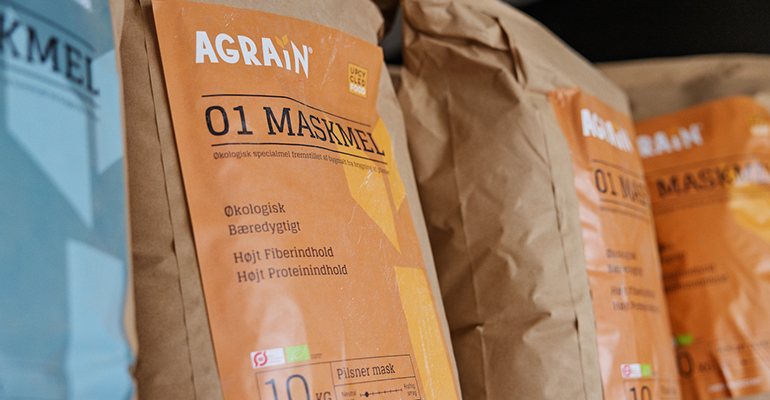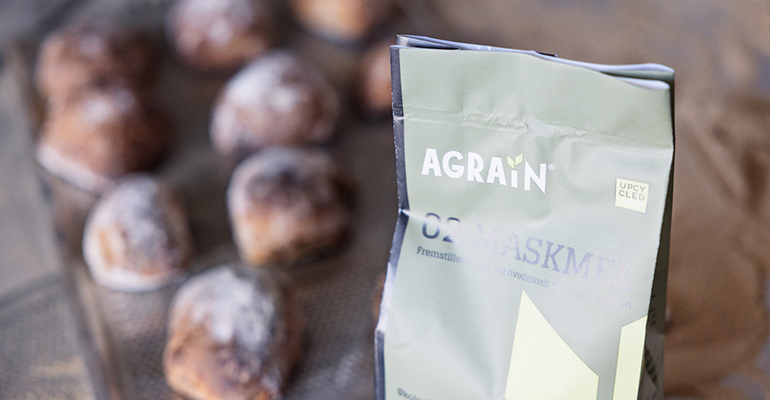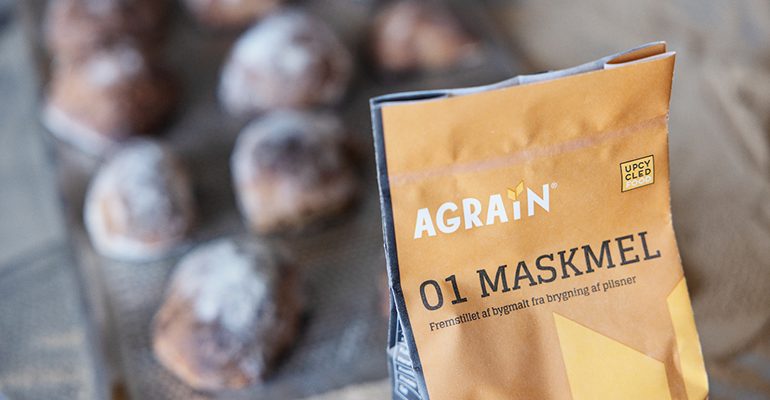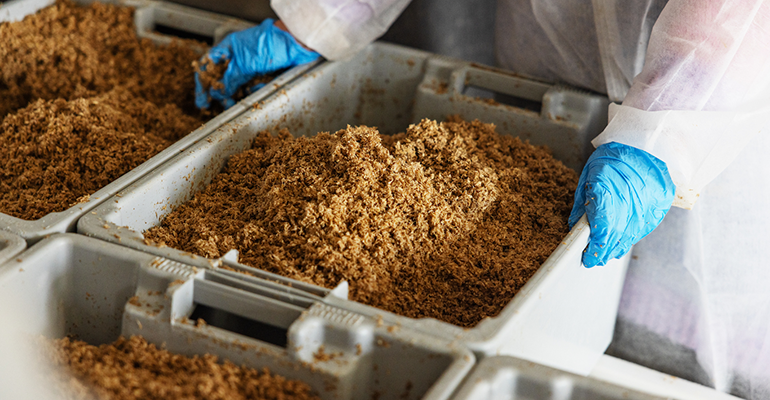News
Danish upcycling startup to expand high-protein, high-fibre flours
11 Oct 2023Danish startup Circular Food Technology produces high-fibre, high-protein flours from upcycled brewer’s spent grain and is gearing up to supply the bakery and bread market.
During the beer-brewing process, the sugar and starch is removed from the barley, leaving the spent grain – malted barley – as a by-product. Circular Food Technology, which was founded around five years ago, uses this spent brewer’s grain (BSG) to make a range of flours and snack products sold under its consumer-facing Agrain brand.

Ingredients Network spoke to account manager Selcuk Yildirim from the Copenhagen-based startup at Future Food Tech in London to find out more about the product, process, and its ambitions to focus principally on the B2B market.
"After [the brewing process], you have leftover barley and we upcycle that barley that we get from the brewers in our production facility in Denmark,” he said. “We press the water out, dry it, and mill it into a flour. Of course, sustainability is very clear: we are circular. We don't use any farmland or any fresh water to produce it and our CO2 emissions are also lower than other flour brands."
The nutritious flour contains 50% dietary fibre and 20% protein and Agrain’s range includes spent grain flours made from pilsner, stout, and IPA. It also makes crackers and crisps.
One advantage of using BSG as a raw material is that the supply chain is stable and robust – around 40 million tons of spent grain are produced as a by-product each year – and it does not require highly specialised machinery to turn it into a usable ingredient.
"The supply is pretty high,” Yildirim said. “Beer is, I think, the fourth biggest beverage drunk in the world so there is a lot of spent grain. [Regarding] the machinery, we have three mechanical processes: a machine that presses, a machine that dries, and a machine that mills, and then packing afterwards."
 © Ulrik Jantzen, Büro Jantzen Aps
© Ulrik Jantzen, Büro Jantzen Aps
Switching focus from B2C to B2B for a bigger impact
Currently, its range of products - flour, crisps, and crackers - are only available to buy online via Agrain's website. Many of its sales are in Denmark but it also sells to consumers throughout Europe and the US.
However, rather than focusing on securing retail listings in supermarkets for its Agrain brand, Circular Food Technology recently made the strategic decision to focus its efforts on B2B supplies, Yildirim said.
"We want to disrupt the food industry and system that we have now, which is only focused on using more land to feed more and more people. There is not room for that and so we need to look into new systems such as upcycling.”
 © Ulrik Jantzen, Büro Jantzen Aps
© Ulrik Jantzen, Büro Jantzen Aps
By supplying the bread and bakery industry with a B2B ingredient, it can have a bigger impact than through its own consumer-facing brand, he added.
Helping brands develop products ‘at every step’
The experience it has gained by producing its B2C line of crisps and crackers means it can help manufacturers interested in using its flour with the product development process.
"Of course, if we meet a manufacturer that wants to make crisps, we can help them with that as we have experience there,” said Yildirim.
“We do end-to-end applications. We have cooks and bakers working in the company. Often when we present an idea, we have an application ready for [manufacturers] so it is easy for them to implement. We can help at every step."
Its pilsner flour has cereal notes and has golden colour once baked, making it ideal for bread and buns while the IPA flour has a delicate aroma of caramel and nuts, and is ideal for sourdough and savoury baking. The stout spent grain flour, meanwhile, has deep notes of coffee and chocolate and yields a dark colour, meaning it pairs well with rye-based products.
 © Ulrik Jantzen, Büro Jantzen Aps
© Ulrik Jantzen, Büro Jantzen Aps
Circular Food Technology’s current manufacturing capacity is 30 tons a month and by the end of the year, this will increase to 40 tons. By summer 2024, it will be adding a new line to increase its capacity to 80 tons a month.
Proudly upcycled
The startup is a member of Upcycled Food Association (UFA) and it adds the UFA logo to the front of Agrain product packaging. However, Yildirim said the concept of upcycling did not resonate much with consumers - yet anyway.
"I think end users have a hard time figuring out the sustainability and knowing what upcycling is, so that is also one of the journeys we are on: to educate end users. When we grow, we can also be one of the pioneers to have brought upcycling to consumers because that's one of the difficulties we see: people don't understand upcycling the way we do and the way industry does."